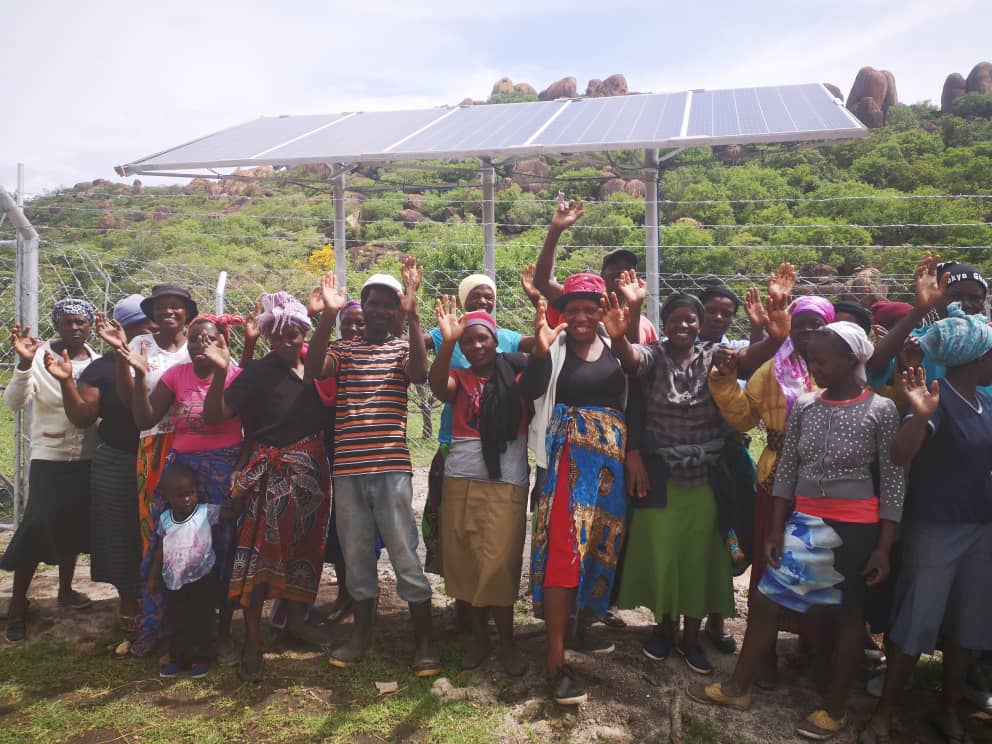
BY EVERSON MUSHAVA

Fambidzanai Permaculture Centre, a local non-governmental organisation, has thrown a lifeline to about 250 households that are set to benefit from agroecology gardens that use solar energy to draw water from boreholes in the drought-prone Matobo district of Matabeleland South.
About 250 more households in Matobo will also benefit from dry farming using agroecology principles that rely on harvesting of rain water and conservation of soil fertility in a bid to improve food security.
Agroecology is a way of farming that relies on the natural ecosystem and mimics nature in terms of water management and disease control. Soil is enhanced using natural means.
The projects will add to the various other solar-powered farming programmes that have been implemented by Practical Action in Gwanda in the same province.
Funded to the tune of US$1,3 million by the Isle of Man government, Fambidzanai has already completed fencing nine gardens and setting up solar systems to draw water from boreholes and sand abstraction.
The projects that started last year will mainly benefit women under the Renewable Energy Empowering Women Farmers. Farmers are already preparing to grow their vegetables.
- Chamisa under fire over US$120K donation
- Mavhunga puts DeMbare into Chibuku quarterfinals
- Pension funds bet on Cabora Bassa oilfields
- Councils defy govt fire tender directive
Keep Reading
According to Fambidzanai programmes manager, Edwin Mazhawidza, the projects will help the communities, who have been sharing water sources in sand abstractions with wild animals and livestock, with clean drinking water.
“Each ward is supposed to have three gardens drawing water using solar. The projects will have an indirect benefit on the various communities, apart from the direct benefit on members,” Mazhawidza said.
“People fetch water for domestic use and their livestock. This is a dry region and people have perennial water problems. Each garden will have about 30 households and they have been trained on agroecology and marketing of their produce.”
Under the projects, beneficiaries contribute 10% of the total cost with the rest provided by Fambidzanai.
In Practical Action’s Gwanda projects, a community of over 2 800 households is now accessing electricity generated at the Mashaba solar mini grid to power some irrigation projects.
Fidelia Moyo, of Mapiko village, who is part of the 26-member Zanzeleni Garden — 20 of them being women — said the project will annually transform the community, which needs food aid.
“Our lives have already changed; we now have safe drinking water and water for our livestock. We will produce our vegetables for domestic consumption as well as for commercial purposes. We will never be poor again,” an elated Moyo said.
Monica Ncube, of Bonani Garden, said without the project, she was destined to die poor, but she will be in Canaan by the time the project is complete.
Over seven million Zimbabweans are in need of food aid due to drought, and the dry Matabeleland region is the hardest hit. But with interventions such as the one by Fambidzanai and Practical Action, communities will be able to produce their own food and become self-sustaining, Ncube said.
About 300 000 farmers, according to Food and Agriculture Organisation, practising agroecology farming have nearly doubled their crop yields.













